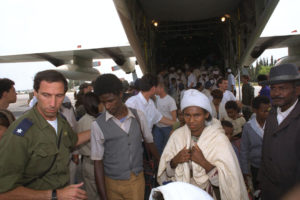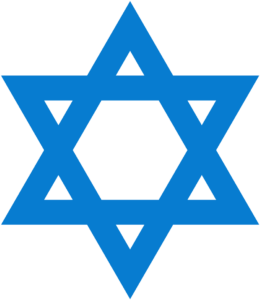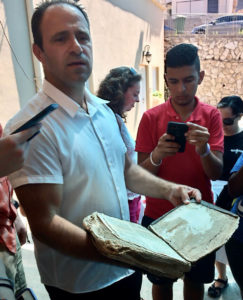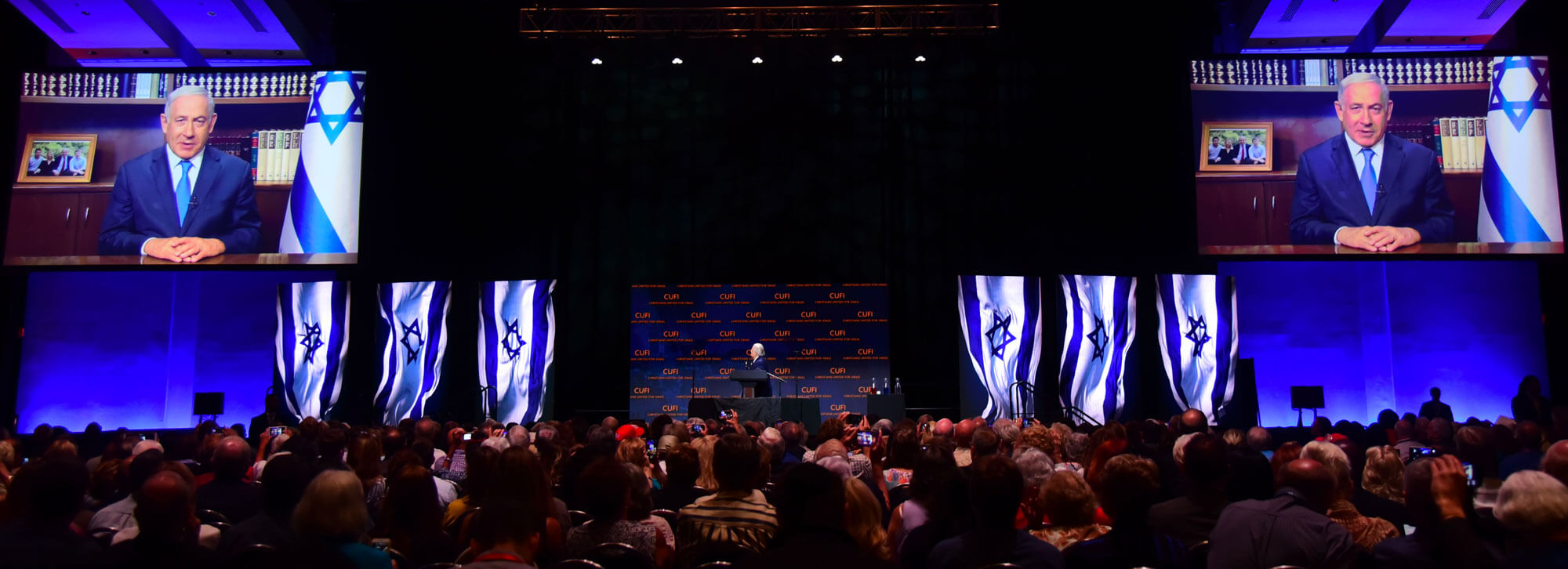A Light Unto the Nations
Lesson 5
A Light Unto the Nations
Learning Objectives:
At the end of this lesson, you should be able to:
- Highlight how Judaism and democracy merge in modern Israel
- Discuss how the concept of Jewish peoplehood is exhibited in Israeli society today
- Explain what it means to live as a minority in Israel
Before You Begin:
- Ask God for a heart of gratitude toward His Chosen People as you discover how Israel is fulfilling her God-given mandate to be a “light to the nations” (Isaiah 49:6).
Note to the Reader: This lesson does not cover the Israeli political system or Israeli elections. However, if you are interested in learning more about how Israeli democracy works, please consult CUFI’s Primer: “The Israeli Government,” included in Additional Resources at the end of this lesson.
So far, we’ve learned about God’s covenant with the Jewish people and also learned more about the deep connection between the Jewish people and the land of Israel. Now we can develop our understanding of Jewish peoplehood in the modern era. The Jewish people were exiled from their homeland for 2,000 years until the modern State of Israel was founded in 1948. (Remember, as we covered in the last lesson, while there were always Jewish communities in the land, they did not have sovereignty.)
In this lesson, we will answer the following questions: what impact did Israel’s founding have on a people whose identity had been so defined by a longing for their homeland? What do you do when you finally get what you’ve been praying for?
Part I: A Jewish and Democratic State
To answer these questions, we are going to closely examine one of the State of Israel’s foundational texts: The Declaration of Independence. We will delve much more deeply into the history surrounding Israel’s founding in later lessons; for now, we are going to look at Israel’s Declaration of Independence to understand how Jewish peoplehood and connection to the land was integrated into this modern-day vision of Israel. We will also explore the founders’ vision of a democratic state with a decidedly Jewish character.
Activity: Text Study
- Review the Declaration silently (Excerpt One found in Additional Resources). You may choose to highlight key points that show Israel’s Jewish aspect as well as its approach to democracy.
Talk about it:
- What stood out to you about the document you just read?
- Was anything surprising or challenging?
- What do the founders say about the Jewish connection to Israel?
- What is the vision for the State regarding its relationship to the global Jewish people?
- What does the Declaration of Independence say about Israel’s relationship to the other communities sharing its land, i.e., the Arabs?
Israel’s Declaration of Independence refers to Israel as the ancient homeland of the Jews, which Jews always longed for during exile, recognized by other states such as Britain as well as the United Nations. The founders envisioned a State that would be open for Jewish immigration (the “Ingathering of the Exiles”) and articulated their hope that diaspora Jews would support and immigrate to Israel to help build up the State.
They envisioned a State that would guarantee complete equality (social and political rights) to all inhabitants, whether Jewish or not; guarantees freedom of religion, language, conscience, education, and culture; safeguard the Holy Places of all religions; appeals to Arab citizens to help build the state, on the “basis of full and equal citizenship and due representation,” and commit to peace.

IDF Officer helping Ethiopian immigrants out of the Hercules Jet, Air Force Base, Operation Solomon. Photo credit: Wikimedia Commons.
Modern Israel outlines its values and a vision of what it wants to become in the Declaration of Independence. In looking to its past, highlighting the Jewish connection to Israel and the centrality of the land to the development of Jewish peoplehood, the State of Israel affirms its future as the homeland for all Jews. Israel’s commitment to Jewish peoplehood means that Jews from all walks of life, from across the globe, from Ethiopia to America, Venezuela to Iraq, religious and secular, have a place in Israel, and can immigrate to the State.
DID YOU KNOW?
The term for Jewish immigration to Israel is aaliyah, (ah-lee-yah) and means “elevation, going up.” It references the idea that relocation to the Holy Land puts the individual on a higher spiritual level, and allows one to connect more closely with God. Jewish immigrants to Israel are known as olim (oh-leem).
Scripture Snapshot:
At its highest point, Jerusalem is 2,500 ft. above sea level, located on the Judean plateau. For this reason, many Psalms, called the Psalms of Ascent, describe pilgrims going “up” to Jerusalem for feasts such as Passover and Pentecost (Psalms 120-134). In the Gospel of John, Jesus goes “up” to Jerusalem several times to celebrate Jewish feasts such as Hanukkah and Passover (e.g., John 5:1, 7:10). This is also why Jews who immigrate to Israel are said to be “going up” or making aaliyah (which means “elevation, going up”).
Psalm 122,
A song of ascents
Of David.
1I rejoiced with those who said to me, “Let us go to the house of the LORD.”
2Our feet are standing in your gates, O Jerusalem.
3Jerusalem is built like a city that is closely compacted together.
4That is where the tribes go up, the tribes of the LORD, to praise the name of the LORD according to the statute given to Israel.
5There the thrones for judgment stand, the thrones of the house of David.
6Pray for the peace of Jerusalem: “May those who love you be secure.
7May there be peace within your walls and security within your citadels.”
8For the sake of my brothers and friends, I will say, “Peace be within you.”
9For the sake of the house of the LORD our God, I will seek your prosperity.

The Jewish symbol, Star of David. Photo credit: Wikimedia Commons.
Israel also commits to a democracy defined by equality for all, irrespective of national origin; this democracy will be “based on freedom, justice and peace as envisaged by the prophets of Israel.” In other words, Israel will be a Jewish and democratic state, the first and only in the modern world. Certain elements of Israel’s society are defined by its Jewish identity; the Israeli flag, for example, features a “Magen David,” or Star of David, a decidedly Jewish symbol. Ha-tikvah, “The Hope,” Israel’s national anthem, also highlights Jewish themes and the Jewish connection to Israel. With decidedly Jewish overtones, Israel today is a thriving society with a vibrant civil society and social movements. As the Declaration of Independence promised, there is enfranchisement for all citizens, and all citizens are equal under the law, regardless of their faith. Israel has five courts as part of its independent Judicial branch, and a lively political discourse perpetuated by its independent media.
Meet:

Shadi Khalloul showing ancient Aramean Bible to CUFI on Campus Bonhoeffer fellows in Israel. Photo credit: CUFI
Captain (Res.) Shadi Khalloul
Captain (Res.) Shadi Khalloul is an Aramean Christian Israeli whose goal is to preserve the historic Aramean language and culture within Israel. When Shadi took a “Bible as Literature” course at a university in the U.S., his professor referred to Aramaic as a “dead” language. But Shadi and his family still speak Aramaic, the language that Jesus most likely spoke, today. Since then, Shadi has worked to preserve Aramean culture in Israel. He has said:
“Aramaic is common for both [Jews and Christians]…This is something that can strengthen Israel as a Jewish state and show the world that we Israelis are building and preserving [the Aramaean community] as the only country for the persecuted Christians in the Middle East. We as a minority want to live as indigenous Aramaic Christians and to be able to have one sole Aramaic town that can preserve our Christian faith, Aramaic language, ethnic identity, and our heritage and explain more about our common roots with the Jews.”1
Part II: Safeguarding Minority Rights
We’re now going to focus on what it means to be outside the majority in Israel, i.e., a minority citizen. As indicated in the Declaration of Independence, Israel is home to more than just the Jewish people. Israel counts among her citizens Israeli Arabs, Arameans, Baha’i, Druze, Bedouin, many Christian sects, members of the Ethiopian Church, and the Black Hebrews. Together, these minority communities make up approximately one quarter of Israel’s population.
Scripture Snapshot:
The Bible prophesies a time when the land of Israel will be a melting pot of many nations. Isaiah 2:1-3 says,
“The word which Isaiah the son of Amoz saw concerning Judah and Jerusalem.
Now it will come about that
In the last days
The mountain of the house of the Lord
Will be established as the chief of the mountains,
And will be raised above the hills;
And all the nations will stream to it.
3 And many peoples will come and say,
“Come, let us go up to the mountain of the Lord,
To the house of the God of Jacob;
That He may teach us concerning His ways
And that we may walk in His paths.”
For the law will go forth from Zion
And the word of the Lord from Jerusalem.” -ISAIAH 2:1-3
DID YOU KNOW?
Even though Israel was established as a state for the Jews, it formally recognizes 15 religions, including Islam, the Bahá’í and Druze faiths, as well as many Christian denominations. Each religious community is permitted to freely exercise their faith, observe their own holy days and weekly day of rest. Additionally, Israel protects the holy sites of all religions.
Activity: Research & Learn
Take a few moments to learn about some of the different minorities who call Israel home. Share what you learned with a friend.
Explore the following minority communities in Israel:
- Israeli Arabs
- Arameans
- Baha’i
- Druze
- Bedouin
- Christians
- Ethiopian Church
**Please note, “Christians” in Israel can be broken down even further, to facilitate more research groups. Additional categories may include: the Orthodox Churches, the Non-Chalcedonian Churches, the Latin & Uniate Churches, and Protestant Churches.
- We have suggested relevant links to suggested resources to use when researching different minority communities in Israel. These may be found in Additional Resources. You may prefer to use your own. You should take note of: founding, connection to Israel, number of practitioners (if a religion), and what their relationship is with the State of Israel.
- Spend a few minutes explaining what you learned with someone. Talk about it!
Israel is more of a mosaic than a melting pot. The State of Israel is fully committed to equality under the law for all citizens, regardless of religion, race or nationality. Moreover, Israel is the only state in the Middle East where Christians and their holy sites are protected. Since the Arab Spring, there has overall been an exodus of Christians from the Middle East due to violence, oppression, and threats of extermination, especially in Egypt, Palestinian controlled territories, Lebanon, and Syria. However, the numbers of Christians in Israel have grown over the past decades; Israel continues to be a safe haven for minorities in the Middle East who wish to live their lives without oppression.
Who said that?
In July 2014, Israel’s Prime Minister, Benyamin Netanyahu, addressed the Christians United for Israel Washington DC Summit, declaring that:
Throughout our region and this turbulence with the rise of Islamic militancy, all these fanatic groups attack Israel. They want to destroy Israel without a doubt. But they also want to destroy Christians. They persecute Christians, they burn churches, they drive Christian communities away. There’s only one place in the Middle East where Christians are free absolutely free. Their freedom of worship, their rights are guaranteed, and that’s the State of Israel. And I know you know that bond, this civilizational bond, between us and our common heritage, is what’s at stake here.

Prime Minister Benjamin Netanyahu addressing the CUFI Washington, D.C. Summit.
Photo credit: CUFI
FURTHER STUDY AND REFLECTION
View the following film about Christian persecution in the Middle East which can be found at the link below.
- “The Truth About Christian Persecution.” (1:44)
- Create a small work of art (vlog, poem, art piece, etc.) focused on your feelings regarding what you learned in the film, both about Christian persecution and Israel’s commitment to Christians.
ADDITIONAL RESOURCES

Israel’s Declaration of Independence. Photo credit: Wikimedia Commons
Excerpt One:
Excerpts from Israel’s Declaration of Independence
ERETZ-ISRAEL (the Land of Israel) was the birthplace of the Jewish people. Here their spiritual, religious and political identity was shaped. Here they first attained to statehood, created cultural values of national and universal significance and gave to the world the eternal Book of Books.
After being forcibly exiled from their land, the people kept faith with it throughout their Dispersion and never ceased to pray and hope for their return to it and for the restoration in it of their political freedom.
Impelled by this historic and traditional attachment, Jews strove in every successive generation to re-establish themselves in their ancient homeland. In recent decades they returned in their masses. Pioneers, ma’pilim (immigrants coming to Eretz-Israel in defiance of restrictive legislation) and defenders, they made deserts bloom, revived the Hebrew language, built villages and towns, and created a thriving community controlling its own economy and culture, loving peace but knowing how to defend itself, bringing the blessings of progress to all the country’s inhabitants, and aspiring towards independent nationhood. . .
The catastrophe which recently befell the Jewish people — the massacre of millions of Jews in Europe — was another clear demonstration of the urgency of solving the problem of its homelessness by re-establishing in Eretz-Israel the Jewish State, which would open the gates of the homeland wide to every Jew and confer upon the Jewish people the status of a fully privileged member of the community of nations. . .
On the 29th November, 1947, the United Nations General Assembly passed a resolution calling for the establishment of a Jewish State in Eretz-Israel; the General Assembly required the inhabitants of Eretz-Israel to take such steps as were necessary on their part for the implementation of that resolution. This recognition by the United Nations of the right of the Jewish people to establish their State is irrevocable.
This right is the natural right of the Jewish people to be masters of their own fate, like all other nations, in their own sovereign State.
ACCORDINGLY WE, MEMBERS OF THE PEOPLE’S COUNCIL, REPRESENTATIVES OF THE JEWISH COMMUNITY OF ERETZ-ISRAEL AND OF THE ZIONIST MOVEMENT, ARE HERE ASSEMBLED ON THE DAY OF THE TERMINATION OF THE BRITISH MANDATE OVER ERETZ-ISRAEL AND, BY VIRTUE OF OUR NATURAL AND HISTORIC RIGHT AND ON THE STRENGTH OF THE RESOLUTION OF THE UNITED NATIONS GENERAL ASSEMBLY, HEREBY DECLARE THE ESTABLISHMENT OF A JEWISH STATE IN ERETZ-ISRAEL, TO BE KNOWN AS THE STATE OF ISRAEL.
WE DECLARE that, with effect from the moment of the termination of the Mandate being tonight, the eve of Sabbath, the 6th Iyar, 5708 (15th May, 1948), until the establishment of the elected, regular authorities of the State in accordance with the Constitution which shall be adopted by the Elected Constituent Assembly not later than the 1st October 1948, the People’s Council shall act as a Provisional Council of State, and its executive organ, the People’s Administration, shall be the Provisional Government of the Jewish State, to be called “Israel”.
THE STATE OF ISRAEL will be open for Jewish immigration and for the Ingathering of the Exiles; it will foster the development of the country for the benefit of all its inhabitants; it will be based on freedom, justice and peace as envisaged by the prophets of Israel; it will ensure complete equality of social and political rights to all its inhabitants irrespective of religion, race or sex; it will guarantee freedom of religion, conscience, language, education and culture; it will safeguard the Holy Places of all religions; and it will be faithful to the principles of the Charter of the United Nations. . .
WE APPEAL to the United Nations to assist the Jewish people in the building-up of its State and to receive the State of Israel into the comity of nations.
WE APPEAL — in the very midst of the onslaught launched against us now for months — to the Arab inhabitants of the State of Israel to preserve peace and participate in the upbuilding of the State on the basis of full and equal citizenship and due representation in all its provisional and permanent institutions.
WE EXTEND our hand to all neighboring states and their peoples in an offer of peace and good neighborliness, and appeal to them to establish bonds of cooperation and mutual help with the sovereign Jewish people settled in its own land. The State of Israel is prepared to do its share in a common effort for the advancement of the entire Middle East.
WE APPEAL to the Jewish people throughout the Diaspora to rally round the Jews of Eretz-Israel in the tasks of immigration and upbuilding and to stand by them in the great struggle for the realization of the age-old dream — the redemption of Israel.2
Accessed via the Ministry of Foreign Affairs Declaration of Establishment of State of Israel
__________
2“Declaration of Establishment of State of Israel,” Israel Ministry of Foreign Affairs, accessed April 2020.
Activity: Research & Learn
For Personal Research Activity:
- Jewish Virtual Library
- My Jewish Learning
- BBC
- YouTube
CUFI Resources:
“Being a Christian in the Middle East,” Israel Collective
“I fled Darfur, escaped to Israel,” Israel Collective
“Meet the Ahmadiyya Muslims of Israel,” Israel Collective
CUFI Primer: “The Israeli Government”
CUFI Primer: “The Persecution of Christians in the Middle East”
